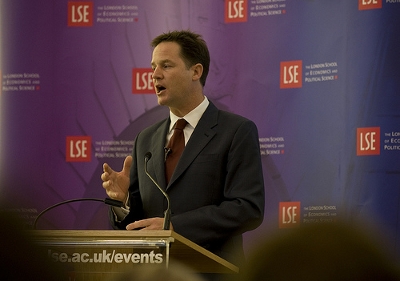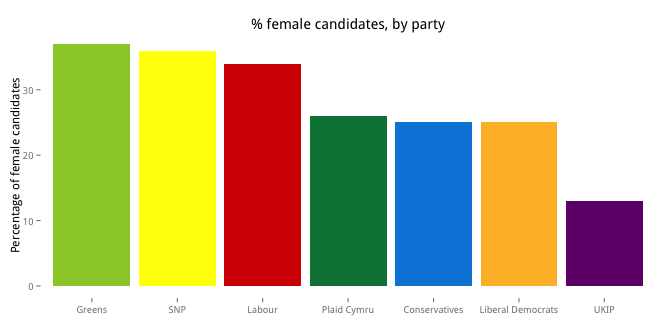 Many have suggested it was the LibDem lack of good faith which scuppered a deal between the party and Labour in 2010 and not the political facts of the day. Bill Jones explores those awkward five days in May and argues that there were more compelling reasons for the LibDems to take the road they took.
Many have suggested it was the LibDem lack of good faith which scuppered a deal between the party and Labour in 2010 and not the political facts of the day. Bill Jones explores those awkward five days in May and argues that there were more compelling reasons for the LibDems to take the road they took.
The publication last year of Andrew Adonis’s splendidly provocative 5 Days in May has resurrected the question of whether a Labour-LibDem coalition was a genuine possibility back in May 2010 and, if so, why it did not come to pass. The five days from Friday 7th to Tuesday 11th May, following Cameron’s ‘big, open and comprehensive offer’ around 2.00 pm on the Friday, was the period during which British political history underwent a seismic change of direction. The question of the coalition’s provenance, moreover, is still freighted with political potency: Clegg is accused of ‘betraying the progressive cause’; Cameron for not taking a golden opportunity to win by a margin; and Labour both for considering a deal with Clegg and also for letting it slip away. If we have another hung parliament in 2015, May 2010 will be hauled out and re-examined. There is no shortage of sources: David Laws; Tory MP, Rob Wilson; memoirs by Darling, Clegg and Mandelson; not to mention Steve Richards’ definitive study of Brown’s government, Whatever it Takes.

Adonis’s book seeks to challenge the accepted narrative, especially that offered by Wilson and Laws. This claims that it was only a Tory –LibDem deal which delivered a working majority while the alternative would have to rely, in David Edgar’s words, ‘on the fickle support of smaller parties to get its legislation through.’
‘The arithmetic does work’, insisted Brown to Clegg when they briefly met at the Cenotaph on May 8th. The key numbers were these: Labour plus Lib-Dems 315; Tory 307; other parties, almost all of them more anti-Tory than anti-Labour, 28. Adonis argues that neither the DUP nor the Nationalists would have voted with the Tories, thus creating a reliable majority of around 30. He goes on however to argue that the reason why the contorted discussions did not produce the desired left of centre result was ‘Nick Clegg’s instinct to go Right rather than Left.’
Like Cameron, Clegg emerged from the wealthy middle classes, attended a top public school and Oxbridge. He went on to work for a former Tory Cabinet minister at the European Commission. His highly ‘European’ family background qualified him for the LibDems rather than the Tories but it was towards the pro-market version of the party, the ‘Orange Bookers’ that he was inclined rather than that of Grimond, Steel and Ashdown. ‘The key point’ insists Adonis, ‘is that Clegg and Laws did not lead their party into coalition with the Conservatives despite Osborne’s austerity, but because of it.
Given this leaning to the right, Adonis sees the crucial Monday 10th May meeting between Labour and the LibDem delegations as a piece of play acting by Laws and his colleagues. ‘It was important [for them] that talks with Labour should appear to fail.’ Adonis for his part, thought the meeting had gone well; the LibDems briefed that the meeting was a ‘disaster’ and that Labour seemed not to want a genuine alliance. He concludes that the resultant coalition ‘was a marriage of neoliberal minds’: it was basically Clegg’s fault for leading Labour up the Rose Garden path while always intending to tie the knot with his class cousin.
This is a persuasive thesis for Labour as it suggests it was LibDem lack of good faith which scuppered any deal and not the political facts of the day. Whilst there is undeniably some strong element of truth in this analysis, I would suggest close examination of available sources imply there were more compelling reasons for the LibDems to take the road they took.

Firstly the LibDems were impressed by Cameron’s offer and pleasantly surprised (flattered? delighted?) at the welcome they received from the Conservatives compared with the more restrained, routine, downbeat reception from the Labour team. Secondly, Labour were not anywhere near as well prepared as the Conservatives and therefore appeared less committed to a deal. Thirdly their behaviour suggested they had not worked out agreed positions on such key questions as the deficit, taxation and voting reform. Fourthly, despite the deep antipathy of many LibDems to the Tories, they were very wary of appearing to maintain in office, even until September 2010, a prime minister as unpopular as Gordon Brown. Fifthly, and perhaps most importantly, alliance with the Tories offered more stable political prospects than a ‘Rainbow Alliance’ deal with Labour; as Peter Hennessey quipped to Channel 4 News on the Monday morning, such an arrangement would have ‘too many moving parts’. Finally, the appearance of deep divisions within Labour – Blunkett, Reid and Falconer came out strongly against – during a crucial time for their negotiations effectively ended the chances of a Lib-Lab coalition.
Did Clegg play Labour along in order to put pressure on the Tories to improve their offer on voting reform? Of course this was a powerful motivation for Clegg’s twin track approach but my feeling is that the Lib-Dems were still genuinely seeking a deal until the afternoon of Tuesday 11th when Clegg was almost certainly trying to string Brown along to maximise leverage on Cameron. The retiring prime minister finally lost patience and set out off to his final audience with the Queen. As for that Monday meeting, the contradictory accounts from both sides remains hard to explain.
David Laws declares in his memoir of the discussions that ‘It was clear that if we went into coalition with Labour, we would not be establishing a new government but chaining ourselves to a decaying corpse’. Now he might have ‘sexed’ up his account of incompatibility but it seems unlikely that Alexander, Huhne and Stunell would have all told an identical tale to their party meeting if the Monday negotiations had indeed been all sweetness and light. Did they, however, all agree to rubbish the meeting to legitimise an outcome on which they were all agreed? Maybe, but my reading of the sources leads me to think this unlikely. My view is that the reality was more nuanced and that the LibDems had several sound and legitimate reasons to turn down the Lab-Lib option. These discussions are still disputed but if Labour is the biggest party after next year’s election, and Clegg commands the balance of power, I suspect that the traditional affinity between these two left of centre parties will be joyously rediscovered and those awkward Five Days in May swept conveniently under history’s carpet.
Note: This article is based on a longer version in Political Quarterly, Vol 84, issue 4, 2013, pp 460-470. It was originally published on our sister site, the LSE’s British Politics and Policy blog, and gives the views of the author, and not the position of the General Election blog, nor of the London School of Economics. Please read our comments policy before posting.
 Bill Jones is Professor of Politics at Liverpool Hope University.
Bill Jones is Professor of Politics at Liverpool Hope University.







More compelling reasons for the Lib Dems to take the road they took?
There were indeed many compelling reasons but to cite the problem of “too many moving parts” in the arithmetic of a Lib-Lab coalition is to ignore the political affinities of Clegg, Alexander, Laws and Huhne.
Presumably, in a parallel universe, the force of arithmetic and “too many moving parts” would not have prompted the Lib Dems to get in to bed with UKIP or the BNP?
Is it just possible that the neoliberal affinities of Clegg, Alexander and Laws framed the deal with the Tories – a deal that was then merely sold as Realpolitik to Lib Dem “wets” using the logical arguments cited by Bill Jordan?
The analysis by Bill Jones is oddly historicist in ascribing such a logical actual significance to the “5 days in May”.
Does the behaviour of the Lib Dems subsequently, supporting deeply unpopular, immoral and mandate-less policies such as the bedroom tax, suggest that maybe and just possibly a neoliberal sleight of hand was coaxing the Lib Dems towards Cameron and Osborne in May 2010?
We now have a situation whereby the Coalition is managed by collective cabinet responsibility on even deeply unpopular policies that, ostensibly, have nothing to do with the pre-May 2010 Lib Dems. Who’d have thought it?